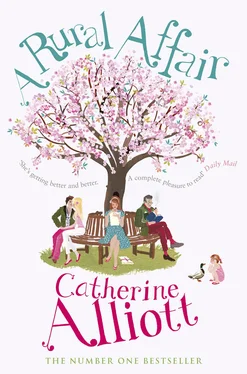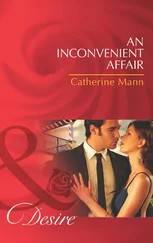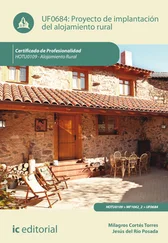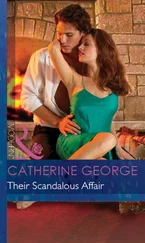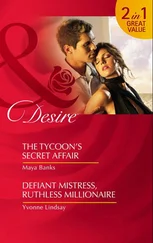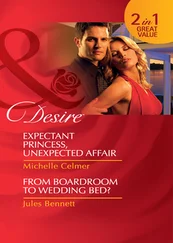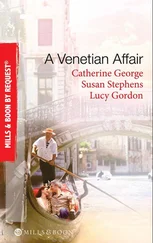Catherine Alliott - A Rural Affair
Здесь есть возможность читать онлайн «Catherine Alliott - A Rural Affair» весь текст электронной книги совершенно бесплатно (целиком полную версию без сокращений). В некоторых случаях можно слушать аудио, скачать через торрент в формате fb2 и присутствует краткое содержание. Жанр: Старинная литература, на английском языке. Описание произведения, (предисловие) а так же отзывы посетителей доступны на портале библиотеки ЛибКат.
- Название:A Rural Affair
- Автор:
- Жанр:
- Год:неизвестен
- ISBN:нет данных
- Рейтинг книги:5 / 5. Голосов: 1
-
Избранное:Добавить в избранное
- Отзывы:
-
Ваша оценка:
- 100
- 1
- 2
- 3
- 4
- 5
A Rural Affair: краткое содержание, описание и аннотация
Предлагаем к чтению аннотацию, описание, краткое содержание или предисловие (зависит от того, что написал сам автор книги «A Rural Affair»). Если вы не нашли необходимую информацию о книге — напишите в комментариях, мы постараемся отыскать её.
A Rural Affair — читать онлайн бесплатно полную книгу (весь текст) целиком
Ниже представлен текст книги, разбитый по страницам. Система сохранения места последней прочитанной страницы, позволяет с удобством читать онлайн бесплатно книгу «A Rural Affair», без необходимости каждый раз заново искать на чём Вы остановились. Поставьте закладку, и сможете в любой момент перейти на страницу, на которой закончили чтение.
Интервал:
Закладка:
As we all trooped away from the church and across the green for coffee and sandwiches at my house, my father fell in beside me. He linked my arm.
‘Well done, old girl.’
‘Thanks, Dad.’
He tactfully left it at that. I might not have rushed to complain to him in the early days of my marriage, but I was close to my dad, and recently he’d known Phil and I had had problems.
‘And I’m sorry you’re missing Tick-a-Tape run.’
This, my father’s horse, or leg of a horse, the one he owned in a syndicate, and for whom he hadn’t missed a race since he bought him. He was running the biggest one of his life today, in a steeplechase at Kempton.
‘Don’t be silly, it’s only a race. There’ll be others. He was my son-in-law, for God’s sake.’
Teetotal, fiercely competitive and allergic to horses: everything Dad was not. We walked on in silence.
‘Got the beers in, love?’ By now we were following the procession up the path, into the house.
‘Well, I thought coffee. And a few bottles of sherry?’
Dad stopped; looked appalled. ‘Right. Well, no worries. I’ll nip to the offy and get a bit more, shall I? Just to be on the safe side. Back in a tick.’
He turned and shot off across the road to his mud-splattered pick-up, bound for Leighton Buzzard, and a tick was all he would be, I thought, since he drove at the speed of light. It was one of the things my mother had despaired of. Mum. What would she be thinking now, I wondered, as I carried on into my house, glancing briefly heavenwards as I crossed the threshold. What would she think of this fractured little family of hers, this widowed husband, this only child, now a widow herself? Mum had never met Phil, her own car, which she drove as thoughtfully and carefully as she lived her life, having been involved in a pile-up on the M4 long before he’d been on the scene. That terrible Boxing Day evening when I was eleven, and she’d felt compelled to go and see Auntie Pam, who was on her own, and then come back to give us cold turkey and beetroot for supper; generally packing too much into one day, splitting herself too many ways. The pilot light in Dad’s life and mine had all but gone out for a long time, but gradually we’d lit the fuse together, with shaky hands. She might recognize Dad, I thought as I turned to watch him go, haring off in an all-too-familiar fashion, one hand tuning the car radio into the racing, but would she recognize me? This hitherto headstrong daughter of hers, who’d sat on her hands in a bad marriage for years? She wouldn’t think me capable. But then, she wasn’t to know the after-effects of her death; wasn’t to know I was a different person. Wasn’t to know I now had a very scared, conventional side, one that didn’t want to be the one left without a mother, or a husband; one that didn’t want to be last. Or perhaps she did know that. Perhaps I’d been like that all along, and maybe she would recognize me, after all.
My tiny sitting room was packed, and some people I swear I’d never seen before in my life, but with Mum still on my mind I greeted them warmly, gratefully, as she would have done, before going to the kitchen, where more familiar faces were busy taking cling film off sandwiches, boiling the kettle. Jennie and Angie turned as I came in; gave me sad little smiles. Perhaps she’d met him, I thought with a start as I went to the fridge. I stopped, in the light of the open door, heart pounding. Perhaps Mum was even now up there shaking hands with Phil, on a cloud somewhere? I felt a hot flush creep up my neck. I hoped not. I could see her lovely generous smile, see her being studiously warm and kind to him, but, underneath, might she be thinking: heavens, who’s this? Whatever happened to Ben?
‘Are you all right, Poppy?’ Jennie was at my elbow, peering into my face. I seemed to have dropped the milk bottle. It was flooding in a white lake all over the terracotta floor. Someone else, Angie, was quickly wiping it up, crouching in an elegant black shift dress and heels. I saw them exchange a concerned glance.
‘Hm?’ I came to. ‘Oh. Yes. Fine. Sorry about that.’
Peggy and the children arrived from across the road. The children ran about screeching, darting between adult legs, overexcited to see so many people in their house. Peggy swept in and positioned herself on a stool by my Aga, her usual spot. Once obviously beautiful, she’d kept the streaky blonde hair and the skinny figure and today was in leggings, pixie boots, a long black polo-necked jumper and bohemian beads. She chain-smoked and watched me carefully, her small smile ominously irreverent.
‘So everyone’s making themselves very busy?’ she observed in her gravelly way, as if a laugh was barely suppressed.
‘I know, aren’t they kind?’ I said, ignoring the inference. Much as I adored Peggy I wasn’t sure this was the moment for her refreshing take on life. ‘Oh, Angie, I thought we’d have the sausage rolls later, after the sandwiches have been … Oh.’ Angie had already swept through to the sitting room on a waft of scent.
‘When you’re bereaved, people behave as if you can’t see or hear,’ Peggy told me. ‘It’s as if you’ve been in a tremendous accident.’
I ignored her and went to get some more milk from the fridge. As I poured it into a jug, Jennie looked doubtful. ‘I’ve smelled it,’ I told her. ‘It’s fine, just a bit creamy.’
‘They like to have something to do,’ Peggy murmured. ‘Makes them feel useful. Takes their mind off you.’
Jennie got a fresh bottle of milk from the fridge, busily poured the first one away, then refilled the jug.
‘And anyway,’ Peggy concluded, ‘they don’t know what to say to you.’
‘No one ever does at a funeral,’ said Jennie.
‘Particularly one like this,’ remarked Peggy darkly.
I was glad when Angie’s teenage girls burst in, looking windswept and gorgeous: flowing hair, tiny skirts.
‘Hi, Poppy. Oh God, I’m so sorry about Phil.’ Clarissa flung her arms around me. ‘Poor you.’
‘And I’m so sorry we couldn’t come to the funeral, the train took literally hours.’ Felicity hugged me too.
Lovely, sweet girls with soft hair and beautiful manners, they knew exactly what to say, exactly how to behave, courtesy of a full-time mother and expensive boarding school. I hugged them back, hoping for the same for Clemmie one day, hoping to enable her.
‘Obviously he couldn’t get them here earlier,’ their mother remarked sourly, coming back in with her empty sausage roll plate. She banged it down on the side and hugged her daughters. ‘Oh no, it would be too much trouble to get out of bed and get them to the station on time. Too much of an inconvenience.’
Her daughters looked strained, even their pretty manners not stretching to a response to this, a reference to their father, Angie’s estranged husband, Tom, a delightful, twinkly eyed charmer, who, a year ago, had succumbed to the charms of Angie’s girl groom. In fact he’d done more than succumb and the pair of them were now ensconced in a cottage in Dorset, where the girls had clearly just come from. Uncomfortable, they stole silently into the next room.
Tom’s sudden defection had shattered this perfect, enviable family and Angie had gone from being a beautiful, slightly pampered woman who shopped in Knightsbridge, played tennis on her court in the summer and hunted her horses in the winter, to yet another abandoned wife who hadn’t seen it coming. Hitherto, her housework, garden and horses had all been seen to – and, it transpired, her husband – but if anyone had considered her spoiled, nobody would have wished this on her. The shock had aged her overnight and she’d looked all of her forty-one years. But Angie was a fighter, and recently she was better dressed than ever, more beautifully made-up – even when popping to the village shop for bread – although you didn’t have to look hard to spot the pain which flashed across those limpid blue eyes, or the tension around the full glossy mouth. Her daughters seemed as confident and charming as ever, but I couldn’t conceive that the ripples hadn’t reached them, and Angie told me sadly that they had: they were more tearful down the phone on a Sunday night from school, more demanding. And those ripples would surely reach Clemmie and Archie soon too, I thought in panic, as they felt their own father’s absence. Experienced their own void. At least Clarissa and Felicity had had a family unit for a good number of years; at least it had seen them well into their teenage years. Suddenly the enormity of my children’s abandonment dawned on me.
Читать дальшеИнтервал:
Закладка:
Похожие книги на «A Rural Affair»
Представляем Вашему вниманию похожие книги на «A Rural Affair» списком для выбора. Мы отобрали схожую по названию и смыслу литературу в надежде предоставить читателям больше вариантов отыскать новые, интересные, ещё непрочитанные произведения.
Обсуждение, отзывы о книге «A Rural Affair» и просто собственные мнения читателей. Оставьте ваши комментарии, напишите, что Вы думаете о произведении, его смысле или главных героях. Укажите что конкретно понравилось, а что нет, и почему Вы так считаете.
